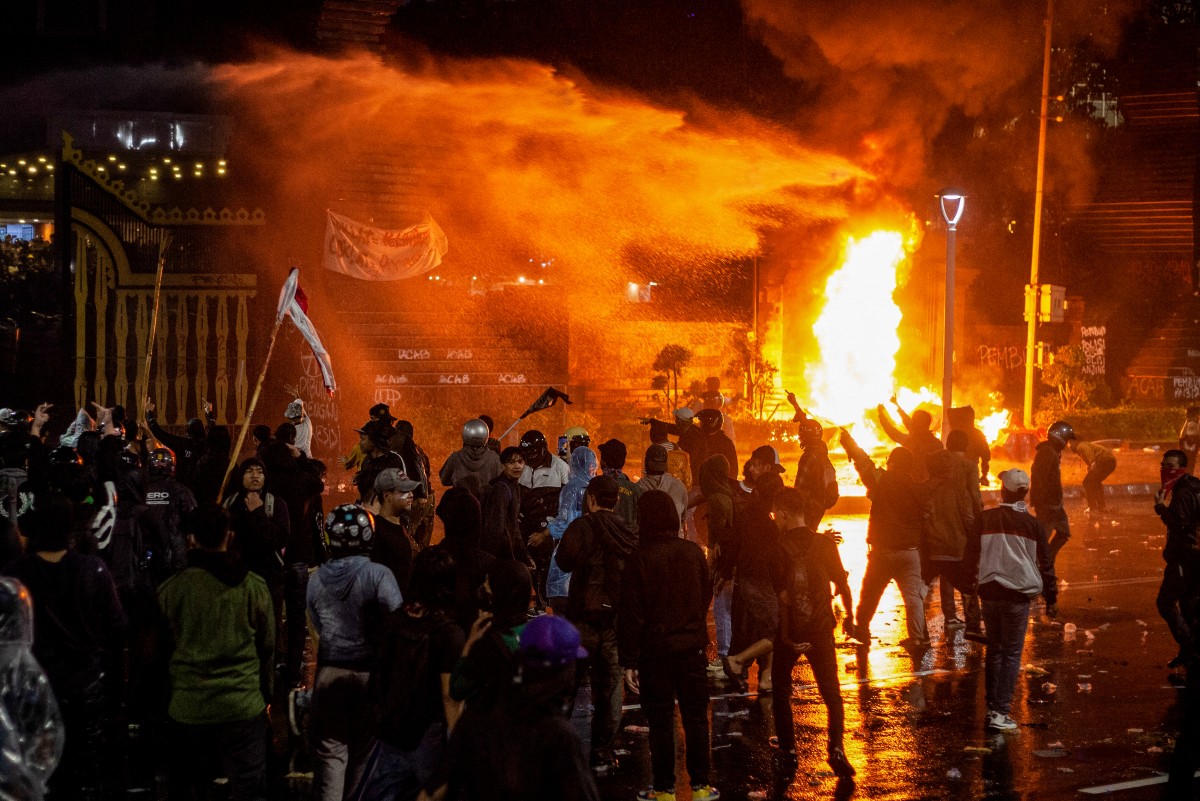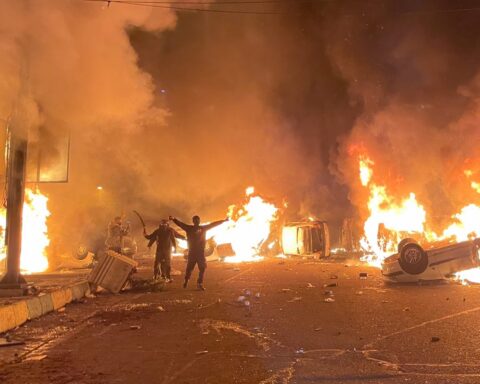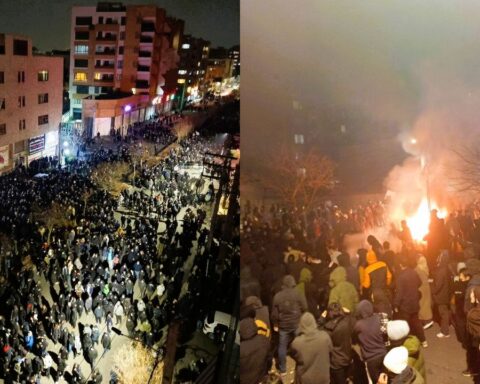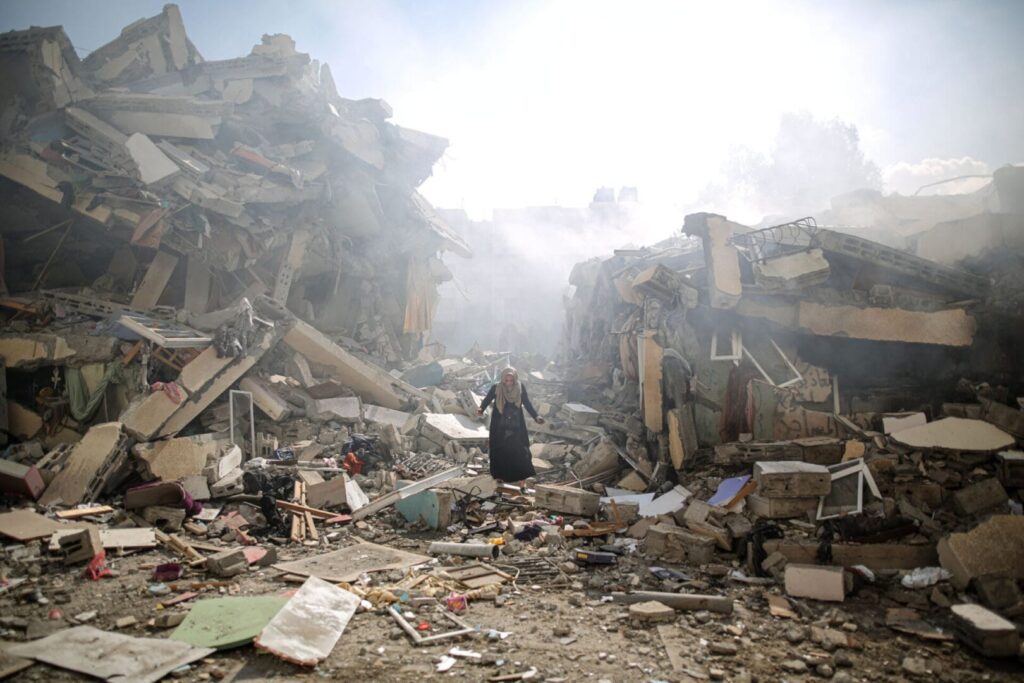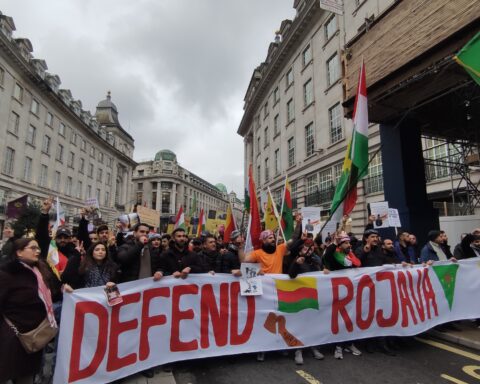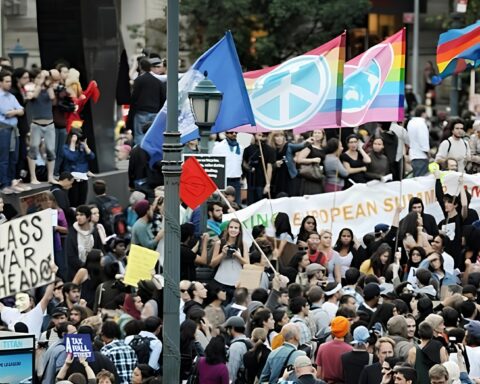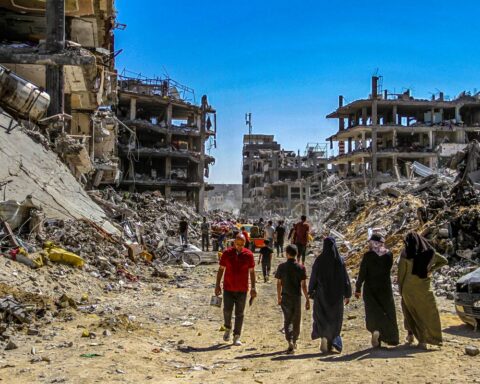Less than a year after taking office, Indonesian president Prabowo Subianto is facing the most militant anti-government protests in years. Recent street actions are caused by the country’s incredible inequality and rule by an entrenched political class. Inequality in Indonesia is extreme, and the gap between rich and poor is widening. While the middle class is shrinking, the elite is becoming ever more wealthy, and arrogantly so. The parliament recently voted themselves a substantial hike in monthly housing allowances, bringing their total monthly income to over 100 million rupiah, more than $6000. Meanwhile, the average monthly wage for workers in February 2025 was 3.09 million rupiah, less than $200. The country’s unemployment rate hovers at 15%, more for youth, the highest in Southeast Asia.
On Thursday morning, August 28, labor unions peacefully assembled outside the parliament building to call for higher wages, tax reform and adherence to existing labor laws. After workers dispersed, students surged around the building, demanding cancellation of politicians’ new housing allowances and dissolution of parliament. That night, Affan Kurniawan, a 21-year old Ojek driver (an online motorcycle delivery/taxi service) was run over and killed by a 14-ton police water cannon and riot control vehicle. A co-worker suffered a broken leg.
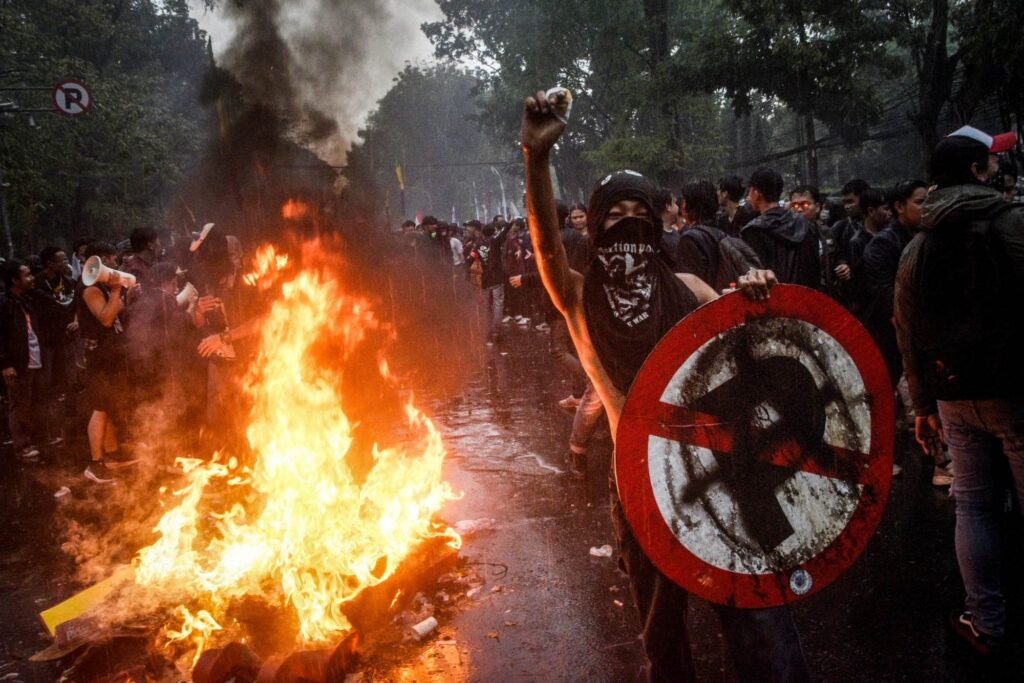
Dismissed from his role as one of the most powerful generals 30 years ago for his involvement in the disappearance of pro-democracy student activists, president Probowo now claims to be ‘shocked and amazed’ by the death of the Ojek driver. He urges calm and ordered an investigation into ‘ethical’ issues related to Affan’s death. The sudden eruption of militant actions across the peninsula compelled him to visit the family of the slain driver and promise that they would be supported by the government for their lifetimes. Affan’s funeral procession was made up of hundreds of green uniformed Ojek motorcycle drivers.
These marginalized workers daily come face to face with Indonesia’s stark inequality. They routinely pick up food at luxurious malls and deliver it to middle-class homes. Their financial situation is so precarious that on December 8, 2024, Darwin Mangudut Simanjutak starved to death in Medan as he waited for a customer’s order. The night before he died, he had complained to a friend that he hadn’t eaten because he didn’t have any money. Six months later, on May 20, 2025, thousands of drivers who worked for the Gojek online platform took to the streets in 18 cities. The Indonesia Online Drivers Union reported that at least 12 of their members had died due to fatigue because workers sometimes were on the job 18 hours per day. These drivers represent thousands of others who have been denied the benefits of the country’s economic development. For years, they have struggled to get improvements to their wages and conditions only to suffer from recent tax increases and wage reductions.
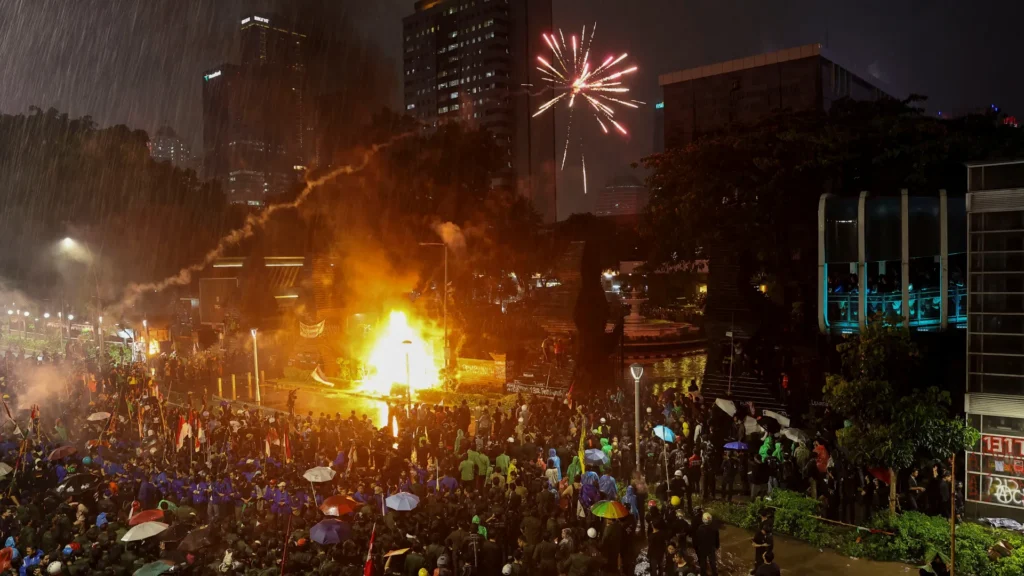
Despite the president’s appeal for calm, people refused to obey. After Affan’s killing, ‘Pembunuh’ (murderer) graffiti suddenly appeared on the streets of many cities. A leading student organization called on all citizens to join them in the streets, noting that, ‘An institution that should protect has turned into uniformed executioners, trampling the dignity of civilian citizens.’
On Friday, August 29, rallies and protests were organized across the archipelago. Regional parliament buildings were set afire and the national parliament in Jakarta was surrounded and besieged. More than a dozen bus and subway stations were destroyed, as were highway toll booths and carefully selected police buildings. The basement and first floor of a large police headquarters in East Jakarta was heavily damaged by fire. Hundreds of protesters massed outside the headquarters of the Jakarta Police’s elite Mobile Brigade (Brimob), the unit blamed for Affan’s death, throwing firecrackers as police responded with tear gas. A determined group of protesters, screaming ‘Pembunuh,’ tried to tear down the gates of the notorious unit, and pulled down a sign from the building’s exterior. Protests spread to other major cities, including Bandung in West Java, Semarang in Central Java, Surabaya in East Java and Medan in North Sumatra. In Yogyakarta, people besieged the regional police headquarters for five hours. Several government vehicles, a police service center, and a traffic post were set afire. Water barriers were attacked as well, forcing closure of the northern ring road.
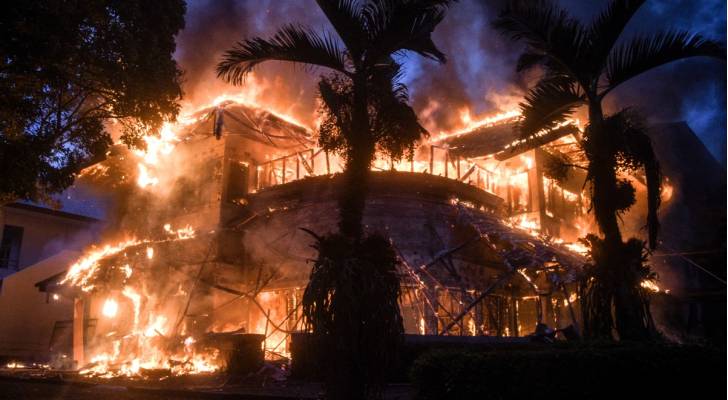
The next day, Saturday, August 30, people’s anger continued to be expressed. Large buildings containing the regional parliament and city council in Makassar, Sulawesi went up in flames. Three government workers were trapped in the buildings and jumped to their deaths from the third floor. Another person was mistaken for a police spy and perished after being attacked by a crowd. In Solo, former President Jokowi’s hometown, the parliament building was also torched. In Jambi, the vice-governor’s official residence burned. In Martaram, protesters set on fire the massive regional parliament. Across the country, dozens of motorcycles, cars and buses were burnt.
At a televised press conference on August 30, the head of the country’s police and the army commander refused to apologize for the murderous state violence. Instead, they blamed anarchists. By dawn, stunned citizens observed dozens of burnt shells of cars surrounded by rocks and bottle fragments in many urban areas. As television news teams surveyed the damages from the street fights, their headlines uniformly declared, ‘anarchists harm the public good.’
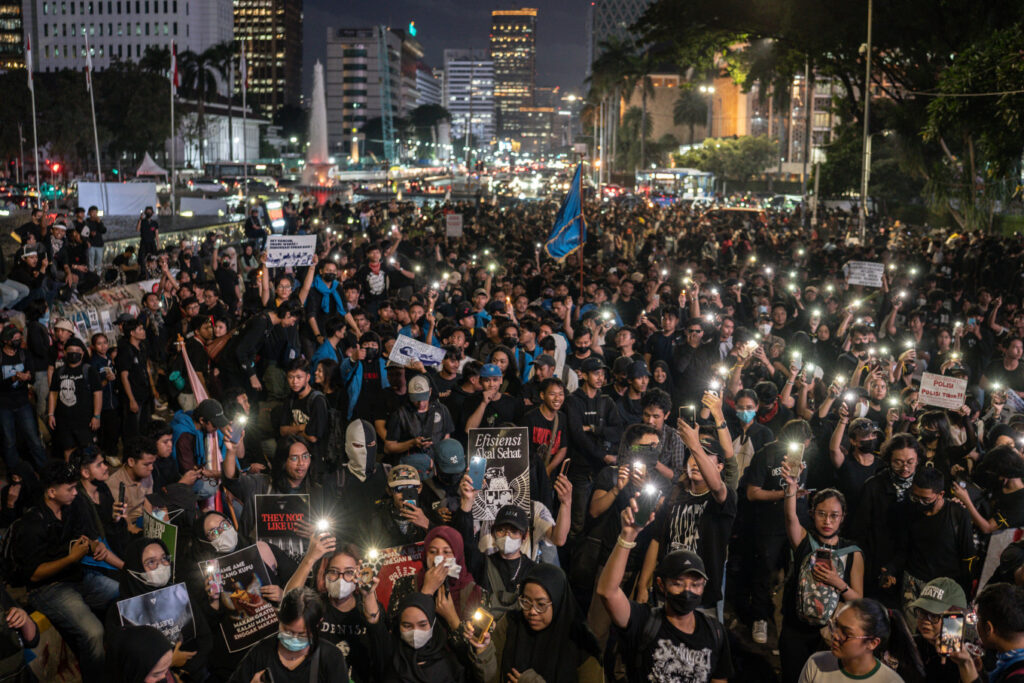
Elite Arrogance Spurs Popular Response
After students called for the dissolution of parliament, Ahmad Sahroni, an influential member of parliament, called that perspective ‘a foolish mentality…That kind of person is the most stupid person in the world.’ After Sahroni repeated his remark, he left for Singapore. While he was gone, hundreds of outraged people surged into his private residence. They looted it while soldiers stood by, pleading with people not to burn the house. The army watched as people carried away the bathtub, refrigerator, washing machine, furniture, and expensive designer bags. A watch valued at more than $300,000 was among the appropriated items. Liberated dollars and rupiah were thrown into the air for all to share in the expropriated cash.
Eko Patrio, another member of parliament and a popular social media influencer, served as DJ for a dance party in parliament after pay raises were enacted. His outspoken celebration led people to converge on his residence. He engaged the protesters, claiming ‘everybody makes content.’ After he left for China, his residence was looted. People also streamed into the house of finance minister Sri Mulyani and Uya Kuya before taking all their belongings.
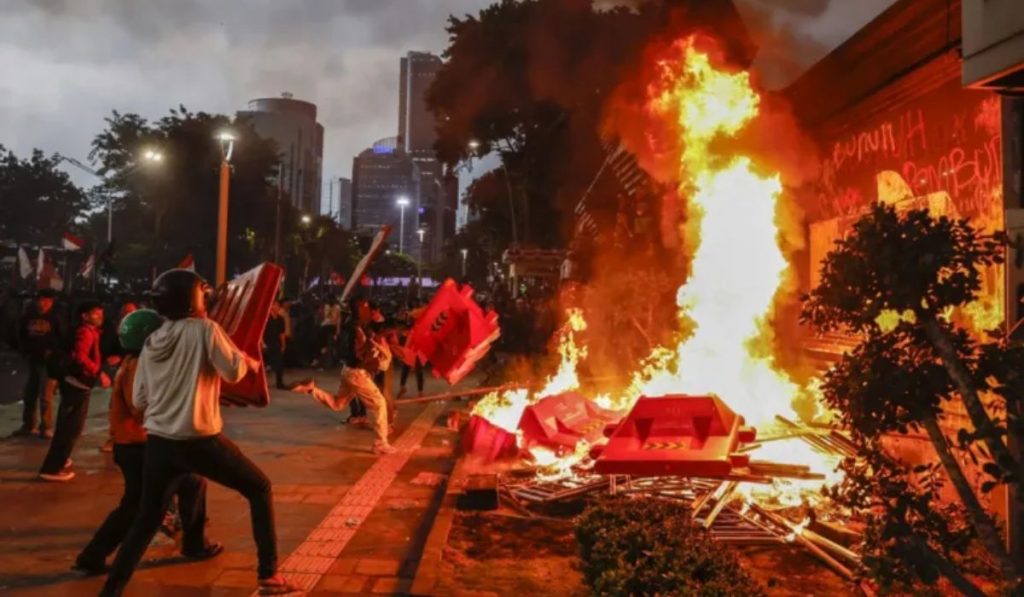
Crass public statements made by leading Indonesian government officials have continually made news. When minister of human development Pratikno was asked by a journalist about a large worm killing a young child, he publicly laughed out loud. Pratikno pointed to his ‘tired eyes’ before breaking into laughter. The five-year-old child named Raya had been diagnosed with tuberculosis. Once in the hospital, a worm began to come out out her nose. After she died, tapeworms weighing approximately one kilogram were found inside her body. The country’s minister of health later claimed infection, not worms, were the cause of death.
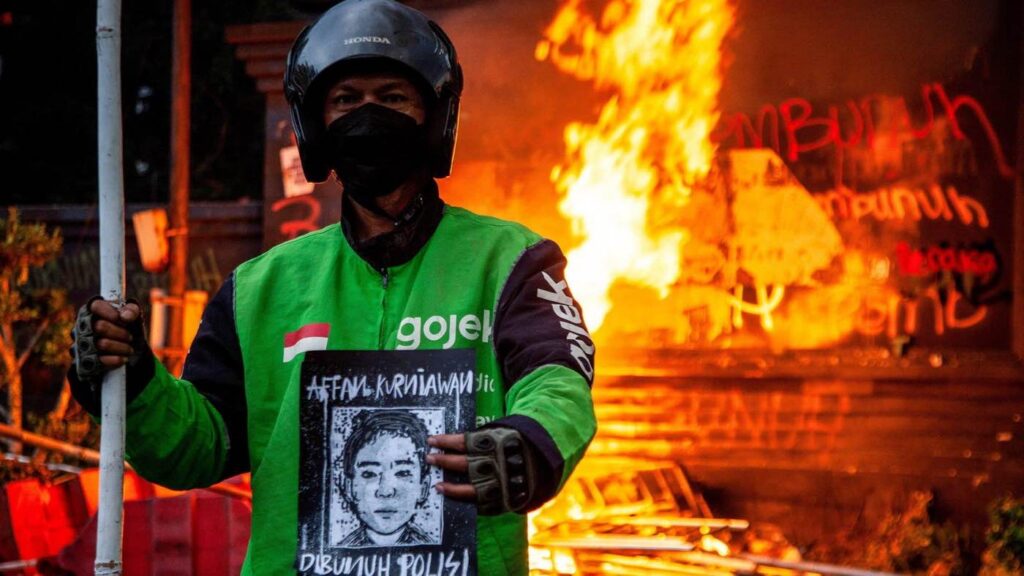
Although no one knows what will happen next, clean-up crews work at a feverish pace to clear streets of burnt out vehicles and to repair public transportation infrastructure. Of more than 500 people injured, dozens are still hospitalized, according to Street Paramedics Organization. Negotiations are underway for the release of more than 600 arrested people and for punishment of police involved in the killing of Affan. One eyewitness to Affan’s murder publicly stated that the Brimob vehicle ‘suddenly sped through the middle of the road without paying attention to the gathered crowd.’ Officials have detained seven Brimob officers for ‘ethical’ questions in connection with the driver’s death. Not surprisingly, government investigators have yet even to determine who was behind the wheel.
Political reforms of little consequence to the poor have been swiftly publicized. Probowo suspended the new housing allowances. Eko has been suspended as secretary-general of National Mandate Party (PAN). Apparently the final straw came after people criticized parliament members dancing to celebrate their housing allowance raise. Eko posted a video mocking people angered by the dancing. Ahmad Sahroni was also suspended from parliament by his NasDem Party, mentioning his statements ‘have offended and hurt the feelings of the people.’ Another party member, Uya Kuya, was shown dancing over a caption reading, ‘just dance with it, you guys thought that Rp3million a day was a lot.’ She was also suspended.
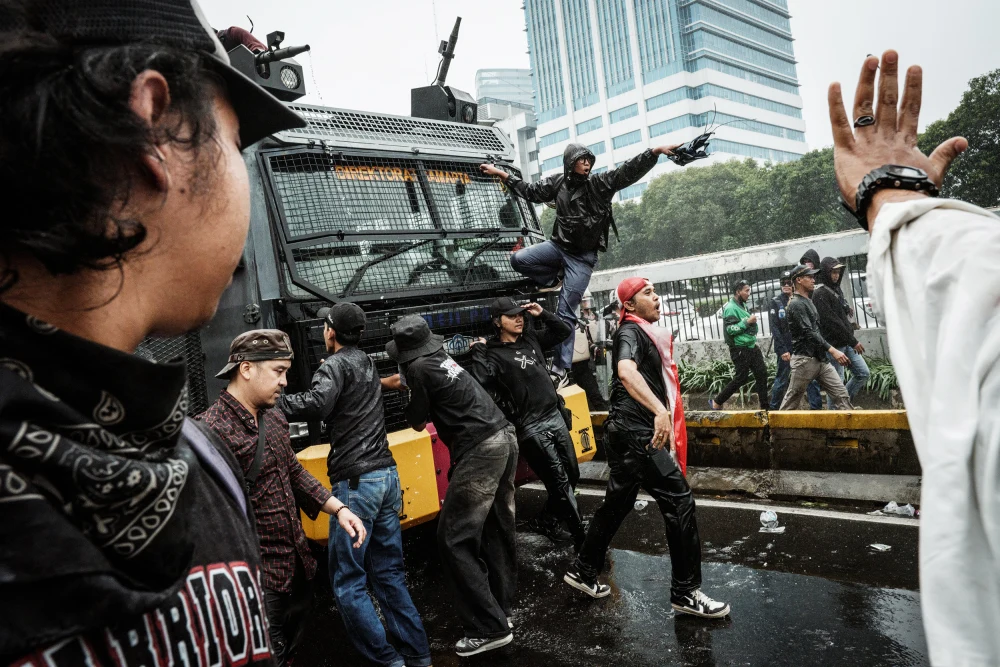
New repressive measures have also been enacted. Probowo warned that the protests could be considered ‘treason and terrorism.’ Three newly created mobile patrols of hundreds of heavily armed police now roam Jakarta. The country’s police chief ordered his officers to shoot with rubber bullets anyone who enters Brimob headquarters. The University of Indonesia has suspended all in-person classes and replaced them with online formats for at least the next week. At the same moment, preliminary reports indicate that protests continue to erupt across the archipelago.
Clearly, recent street actions and looting have stoked fear among the elite and middle class. The uprising has also provided new energy and pride to Ojek drivers and marginalized citizens, a palpable change that could be one of its most important outcomes. Prabowo canceled a trip to Beijing where he had long planned to attend a summit of leaders of countries opposed to US imperial actions. While he has expressed sympathy for Affan’s family, he has also promised that firm responses will meet ‘anarchist acts,’ damage to public facilities, and looting of public and private properties. Many people fear that if militant protests continue, state violence may become more murderous.
